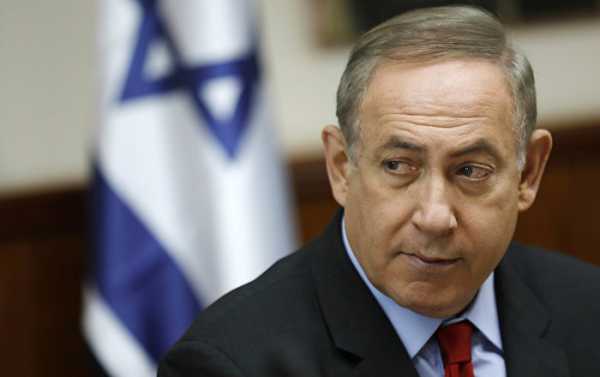
As a rising number of critics accuse Israeli Prime Minister Benjamin Netanyahu of moving political goalposts to avoid ongoing corruption charges, observers in Tel Aviv note that ‘Bibi’ and his Likud party are on track to win the April elections by a slim margin.
In seeking to fend off wide-ranging corruption charges against himself and his family, Israeli Prime Minister Benjamin Netanyahu in November sought the distraction of declaring that the nation was engulfed in a “sensitive security period,” as a means of holding off parliamentary elections until late in 2019, according to reports.
A sudden turnaround by the prime minister, announced December 24, that elections would be quickly moved up to April 9, was ostensibly justified by the tiny majority of Netanyahu and his coalition government, as reported by the Economist.
But the corruption charges against the Tel Aviv leader and his wife are not going away, as evidenced by new moves including a December recommendation from the office of the state prosecutor to have Attorney General Avichai Mandelblit indict Netanyahu for two bribery corruption cases and a third for breach of trust.
As the fight for the political survival of the popular Israeli leader intensifies, Mandelblit announced that he would make a decision on the prosecutor’s recommendation early in 2019 but, with Netanyahu’s sudden announcement of April elections, that decision may be postponed until votes are counted, according to Economist.com.
A fourth consecutive victory at the ballot box would go a long way toward killing the ongoing corruption trials against Netanyahu, whose political party, Likud, is currently projected to see at least 25 percent of the vote in any election in the near future, placing the leader’s tenuous coalition of nationalist, religious and business-friendly parties on track to retain a tiny but crucial majority in the next Knesset, as reported by the Economist.
The next three months heading up to the elections are likely to be fiery, as a rising number of increasingly vocal critics within the government point to Netanyahu’s backroom dealings as a threat to Israeli democracy, including new laws floated by Likud that would act to punish those who criticize the prime minister and his family.
Although those opposed to Netanyahu and his Likud party have plenty of material to draw upon in their push to unseat the powerful leader, there is currently no focused effort between them, as at least five so-called centrist parties are seen to be running their own uncoordinated election campaigns.
Even if Likud retains its majority, however small, Netanyahu — if indicted — would be forced to resign, as several coalition partners have noted that they would not serve under a prime minister who had been indicted, according to the Economist.
Current predictions hold that Netanyahu and his party will survive the upcoming trench war, winning a fifth consecutive term for the embattled prime minister — a political record that would mark him as Israel’s longest-serving leader.
But the battle will be bloody, and could spill into additional areas beyond the Knesset, depending upon the outcome of the corruption trails.
Sourse: sputniknews.com






